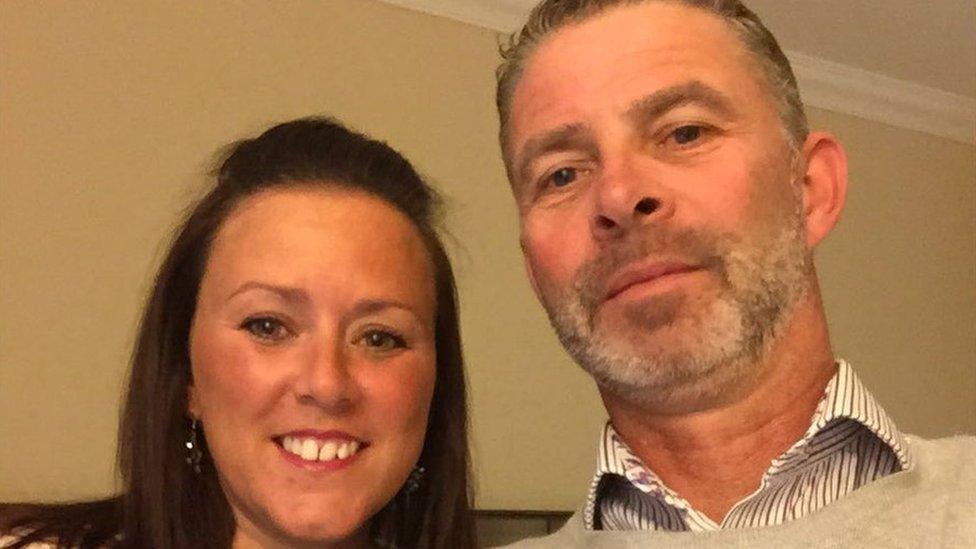The health workers that help patients stay at home
- Published
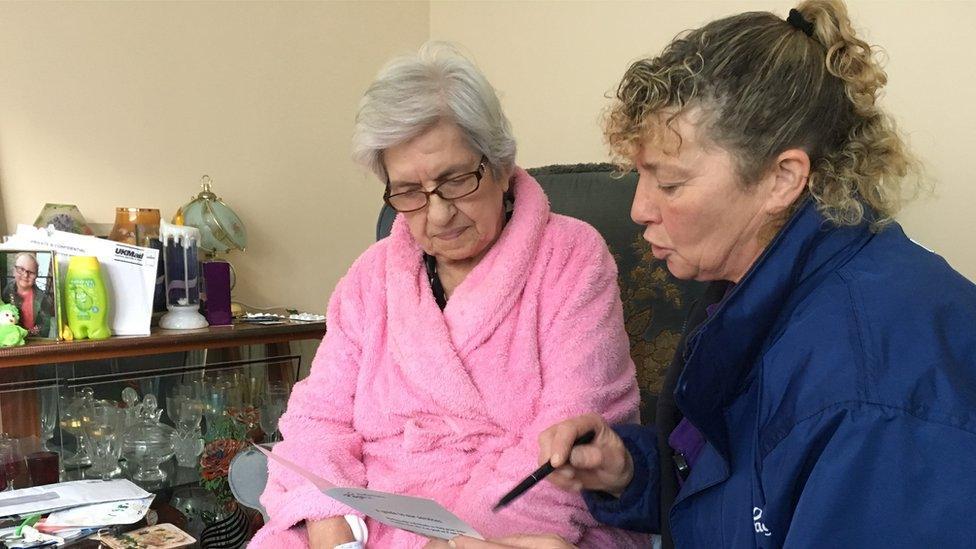
June Lord, 82, is one of those helped home from hospital under the Wakefield project
Every Monday morning, in a meeting room within earshot of the bells of Wakefield cathedral, a group of healthcare workers help to stage a mini-revolution.
Nothing that you read in the next few minutes may strike you as particularly surprising.
Yet the experimental manner in which they are working together in this corner of Yorkshire is being seen as a possible way to improve healthcare across the country, and save the NHS money.
At the table is a healthcare assistant, called Kay, Karen the physiotherapist, then Jane the occupational therapist.
On the other side sit two mental health nurses both called Rachel, and finally Sue Robson - another mental health nurse who's been with the NHS for 37 years.
"I've seen many, many changes, and this is one of the most exciting," smiles Sue.
The full picture
Each Monday, they sit together and plan the care that will be offered to the mostly elderly people they are working with in a number of care homes in the Wakefield district.
Because each here brings a different specialism to the table, they can, as a group, build up a complete picture of how best to help each patient.
There is one woman they are especially worried about this week. She has fallen quite a few times, but as they talk it begins to look less like a purely physical problem.
"I carried out a physio session last week," says Karen.
She was "very anxious. It was difficult to engage with her," adds Kay.
"So today if things don't seem to be improving we may look at discussing with the psychiatrist whether she needs a review," concludes Sue.
"As professionals we are linking up," Sue continues. "We're discussing the case between ourselves. We have links to the GP. We have links to the mental health services and we are all working together rather than in isolation."
"We've seen some good results."
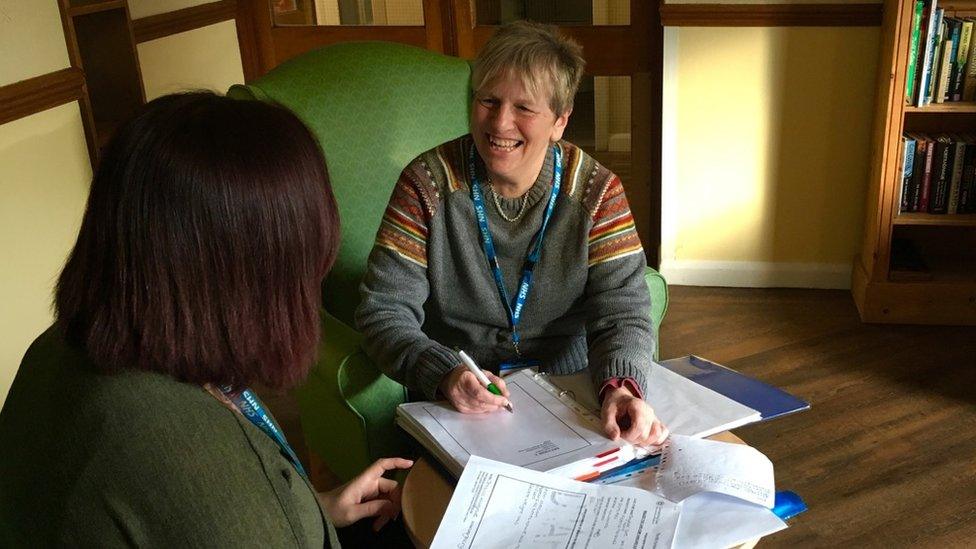
Mental health nurse Sue Robson says they have seen good results in Wakefield
Across the board this project in Wakefield - which at its most basic aims to get the different parts of the health service and the care system working together - is easing the pressures on the NHS and on care homes.
They have seen a sizable reduction in the number of patients who've had to go to hospital from the care homes they work in. A reduction in the use of ambulances. A reduction in the number of days patients who do go to hospital end up spending in a hospital bed.
It's both about keeping patients out of hospital in the first place, and getting them home as quickly as possible if they do need to go.

In the first nine months of 2016-17, phase one of the Wakefield Vanguard Care Homes scheme recorded:
19% reduction in emergency admissions
12% reduction A&E attendances
9% reduction in ambulance call-outs
26% reduction in bed days
Source: Wakefield Clinical Commissioning Group

The project has involved NHS workers training up care home staff beyond the basic first aid most already have. That gives care homes the skills they need to better diagnose what is wrong with a resident who falls ill. It is resulting in better care for patients and fewer 999 calls for an ambulance.
Tackling loneliness
There are also efforts to improve people's health in the first place. A lot of work is going into making the men and women who live in care homes and "independent living" flats (they used to be known as sheltered accommodation) feel less isolated.
Sharon Carter runs one project that aims to stop the elderly feeling lonely. It's called Portrait of a Life. Essentially it's a photo and memory book that residents like 91-year-old Marjorie Smith receive.
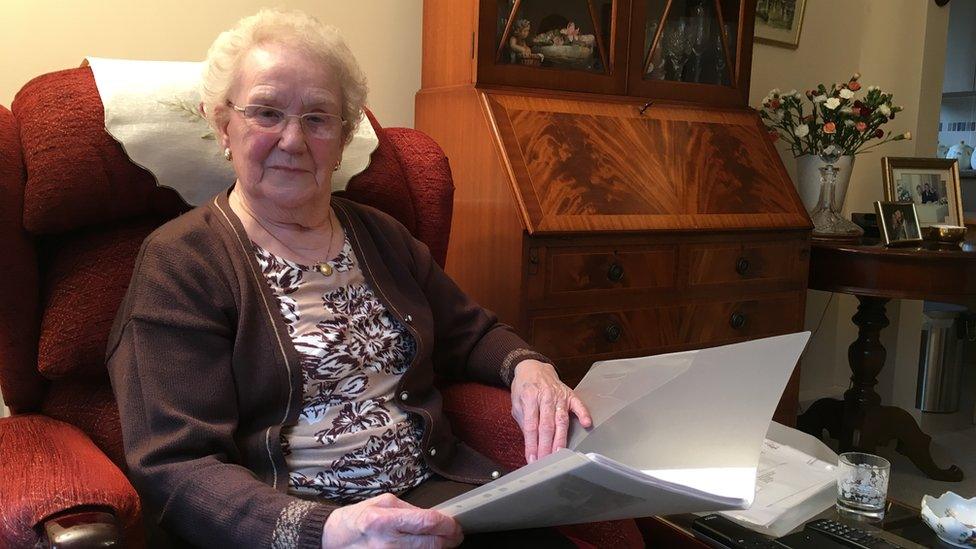
Marjorie Smith is a resident at the Croftlands independent living scheme
It helps them reminisce, it helps other older people living in the same accommodation get to know their neighbours, and it helps care staff learn about what makes the people in their care tick.
"We're finding they have a better sense of well-being as opposed to ill-being," says Sharon.
Along with everything else the project is doing, she says it's led to fewer people going into hospital and residential care.
Many of course still do end up in hospital. And when they do Louise Lumley works at the "getting them home" end of the process.
She's part of Age UK's Wakefield District team, and outside Pinderfields Hospital in Wakefield she's securing 82-year-old June Lord's wheelchair in the back of an adapted car. It will be a 20-minute journey home.
When they arrive, Louise goes through a list of questions. Does June have someone who can help her in the coming days? Does she have the medicine she needs? Is there anything at home that's particularly dangerous that might need to be made safe, to prevent future injuries?
The answers will go into a database that can help tailor June's care in the coming months.

NHS Health Check

A week of coverage by BBC News examining the state of the NHS across the UK as it comes under intense pressure during its busiest time of the year.

There is plenty of other work besides. A local not-for-profit Housing Association sits in meetings with health staff to work out how best to improve the lives of the elderly people who rent flats from them.
They're trying to join up all the parts of the system as much as they can.
Everyone here stresses it's about improving patient care. But there are savings to be made. They estimate that if they roll this project out across the whole district, by 2021 they will make a net saving of £5.3m a year.
You can download the podcast containing Matthew Price's full report for BBC Radio 4's Today programme here.
- Published27 June 2016
- Published6 February 2017
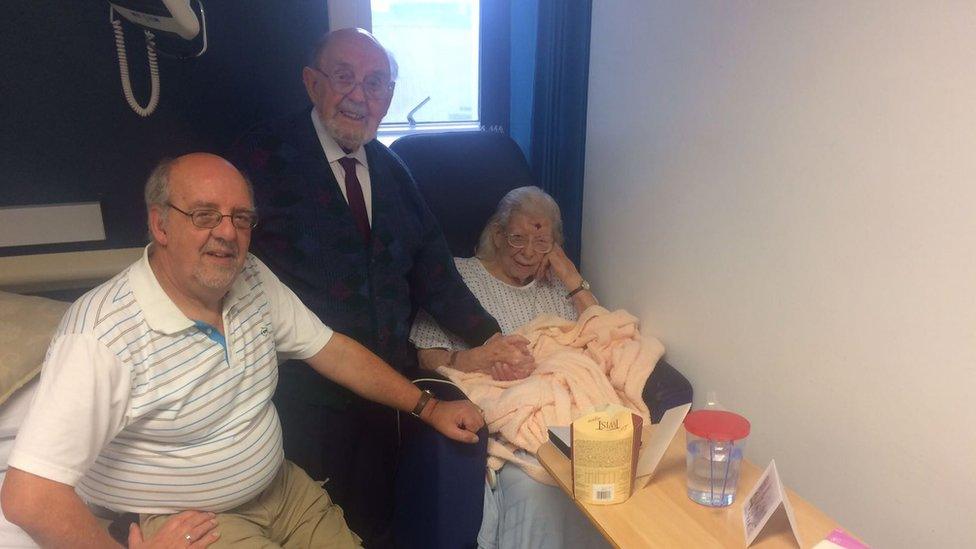
- Published21 February 2017

- Published5 February 2017
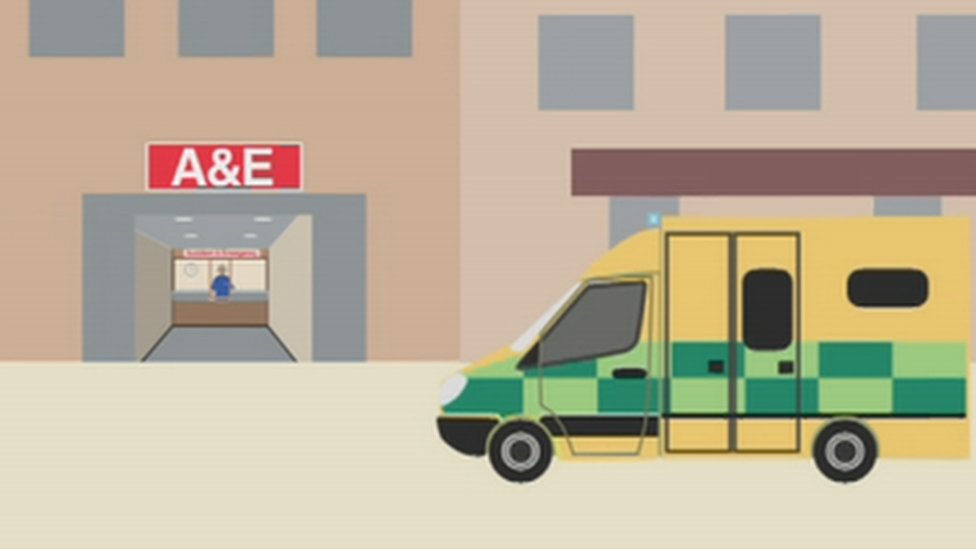
- Published7 February 2017
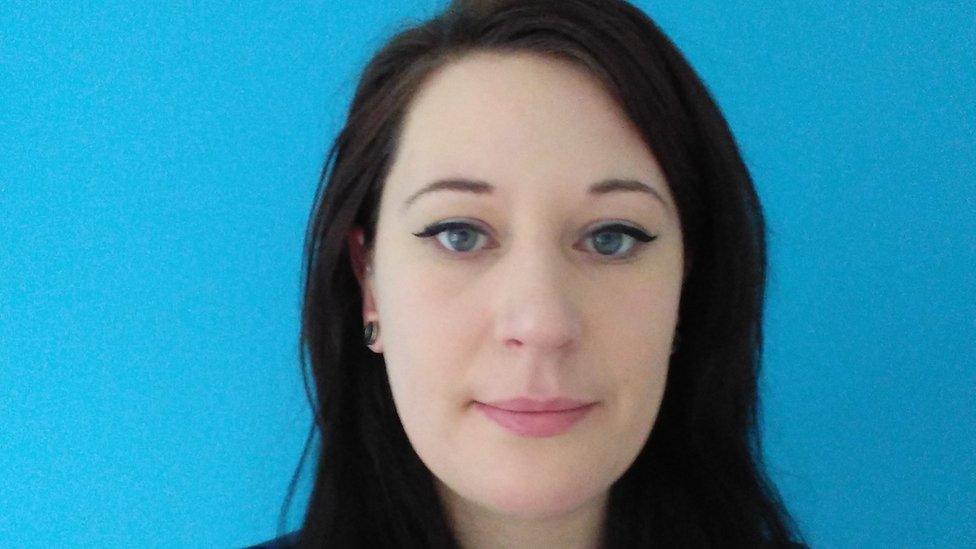
- Published7 February 2017
